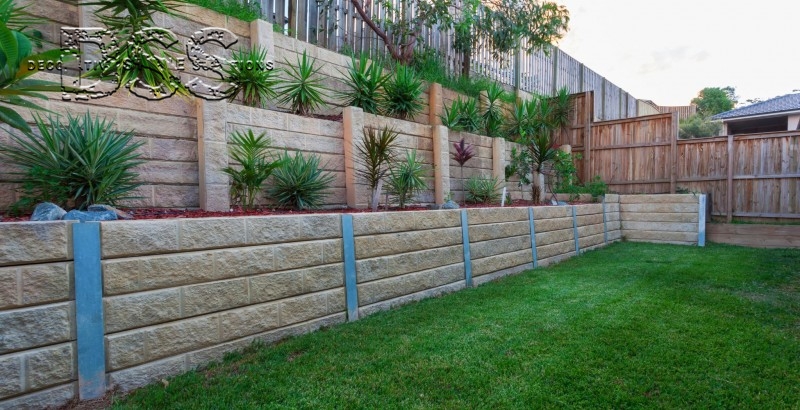Creating A Sustainable Landscape With Decorative Stones.

When it came to landscaping materials in the early 1970s, decorative landscaping stones were the most desirable option, but as time went on, the appeal to get them incorporated into the yard diminished substantially.
But as the need for sustainable landscaping grew, the fashion to include natural features in your yard again gained momentum.
Landscaping with decorative stones for landscaping, however, despite the statistics of their usage, is a great way to enhance your property's visual appeal while promoting sustainability.
You may design a beautiful landscape that needs little upkeep and has a smaller environmental impact by using the correct methods and materials.
So, welcome to the world of creating a sustainable landscape with decorative stones!
Consider yourself at the right place if you're seeking ways to make your outside area a lovely, environmentally friendly retreat.
In this guide, we'll explore the benefits of using garden decorative stones in your landscape design and some tips for creating a sustainable, modern, and visually striking outdoor space.
So let's get started!
Tips To Create A Sustainable Landscape Using Decorative Stones
Creating a sustainable landscape with decorative stones enhances the beauty of your outdoor space and reduces the negative impact on the environment. The following advice will assist you in creating a sustainable landscape using beautiful landscaping stones:
1. Choose local stones:
Opt for decorative stones that are locally sourced, as it reduces the carbon footprint associated with transportation, which further supports the local economy.
2. Use permeable materials:
Permeable decorative stones allow water penetration into the soil, which prevents erosion and replenishes groundwater. This is important because it reduces the amount of water runoff that carries pollutants into nearby streams or rivers.
3. Consider using recycled materials:
Look for decorative garden stones made from recycled materials, such as crushed glass or concrete, resulting in reduced waste but also natural resource conservation.
4. Create a natural look:
Instead of using uniform decorative stones, choose stones of varying shapes and sizes to create a natural look. This will mimic the look of a natural landscape and reduce the need for excessive maintenance.
5. Use stones strategically:
Use decorative stones to create defined pathways, prevent soil erosion on hillsides, and create natural edging around garden beds to alleviate the amount of water needed for maintenance and prevent soil loss.
6. Proper installation:
Proper installation of decorative landscaping stones is crucial to ensuring a sustainable landscape. Ensure that the stones are laid on a base of crushed rock or gravel and are level to prevent shifting while ensuring the landscape's longevity.
Types Of Decorative Stones Used For Sustainable Landscaping
There are many types of decorative stones to be used for sustainable landscaping. Here are a few examples:
1. River rock:
River rock is a versatile type of decorative stone that can be used for various sustainable landscaping applications. Its smooth and rounded shape is naturally created by water erosion, and its permeability allows for water to pass through, reducing the risk of runoff and erosion.
River rock is a durable and long-lasting material, requiring little maintenance over time. It is an environmentally responsible option that comes in a range of sizes and colors, giving any landscape design a natural and distinctive appeal.
2. Crushed stone:
Crushed decorative stone is a very adaptable kind of landscaping decorative stone that is commonly used as a base material for walks and patios, offering a sturdy and durable foundation.
Additionally, it can be used to build aesthetically pleasing landscaping elements like a rock garden or dry riverbed. These are made from natural materials and are sustainable due to their durability and low maintenance requirements.
3. Flagstone:
Flagstone is a type of decorative stone that is popular for use in sustainable landscaping. It is a flat, thin stone that can be used for walkways, patios, and other decorative features.
Because flagstone is made of natural materials, it is strong and long-lasting, requiring little upkeep over time and coming in a variety of hues and sizes.
It adds a distinctive and organic appeal to any landscape design. Flagstone is a safe decorative stone option for locations with heavy traffic because it is also non-slip.
4. Slate:
Slate is a popular type of decorative stone used for sustainable landscaping due to its durability and natural beauty. It is a type of metamorphic rock available in various colors and can be used for walkways, patios, and other decorative features.
Slate is a sustainable choice because it is a natural material that does not require regular maintenance. It is also slip-resistant, making it a safe choice for outdoor areas. Additionally, slate is resistant to weathering, ensuring a long-lasting and sustainable landscape design.
5. Granite:
Granite is a durable and long-lasting decorative stone popular for use in sustainable landscaping. This volcanic rock is a versatile option for any landscape design because it comes in a variety of hues and sizes.
Due to its natural makeup and low maintenance needs over time, granite is a sustainable material choice. A durable and sustainable landscape design is ensured by its resistance to weathering. Granite is a secure option for outdoor spaces with heavy foot traffic because it is also fall-resistant.
In conclusion, using decorative landscaping stones in sustainable landscaping is a smart and eco-friendly choice.
By selecting natural and durable materials like river rock, crushed stone, flagstone, slate, and granite, you can create a beautiful and functional outdoor space that requires little maintenance and has a reduced environmental impact.
Decorative stones can be used to create walkways, patios, dry riverbeds, rock gardens, and many other landscaping features.
With their versatility and sustainability, decorative stones for landscaping are a great addition to any landscape design that values both aesthetics and environmental responsibility.
Comments
Post a Comment